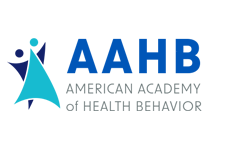Abstract
Despite the demonstrated potential of the HPV vaccine in preventing 90% of HPV infections, a large proportion of young adults remain unvaccinated. Given the influence of social media and interpersonal factors on HPV vaccine uptake, our study aims to examine the impact of social media, internet-based health communication, and social influences on perceived effectiveness of the HPV vaccine among college students in the US. Using data from a national sample of 2400 college students, we employed structural equation modeling to explore the relationship between social influence, social media, internet-based health communication, and perceived HPV vaccine effectiveness. Being female (β = 0.08, p<0.05) and white (β = 0.15, p<0.05) were significantly and positively associated with increased social media use. Conversely, being white was negatively associated with vaccine effectiveness (β = -0.91, p<0.05), while being female showed a positive association (β = 0.44, p<0.05). Social media use exhibited a positive association with social influence (β = 0.21, p<0.05). Findings revealed no statistically significant relationships between social influence, social media, internet-based health communication and HPV vaccine effectiveness (p<0.05). Further exploration is warranted to understand the nuanced dynamics of internet use and social influence in the context of HPV vaccine effectiveness.
Author ORCID Identifier
0000-0001-6121-0229
Creative Commons License

This work is licensed under a Creative Commons Attribution-Noncommercial 4.0 License
Recommended Citation
Tomar, Aditi; Thompson, Erika; Hopkins, Laura; and Smith, Matthew L.
(2024)
"Exploring the Impact of Social Media, Health Communication, and Social Influences on College Students’ Perceived Effectiveness of the HPV Vaccine,"
Health Behavior Research:
Vol. 7:
No.
4.
https://doi.org/10.4148/2572-1836.1251




